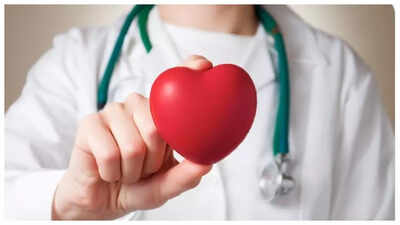
Ever felt your heart flutter so fast that it feels like it will burst out of the chest? This fast beating, pounding sensation is called Heart palpitations, and are usually pretty common.
However, while these palpitations might feel quite serious, they are actually quite harmless most of the time, and can occur due to a variety of factors. Here is when they spell trouble, however...What Are Heart PalpitationsHeart palpitations feel like your heart is racing, fluttering, pounding, or skipping beats. You might notice these sensations in your chest, throat, or neck. They can happen during physical activity or even when you are resting.
They usually last for a few seconds to minutes, but can sometimes last longer.

Common Causes of Heart PalpitationsMost heart palpitations are triggered by harmless factors such as:Stress and strong emotions: Anxiety, panic attacks, or sudden fear can cause your heart to race. (a sinking feeling)Physical activity: Strenuous exercise can temporarily increase your heart rate.Stimulants: Caffeine, nicotine, certain cold medicines, and drugs like cocaine or amphetamines can trigger palpitations.
Hormonal changes: Pregnancy, menstruation, or menopause can affect your heartbeat.Medications: Some prescription and over-the-counter drugs may cause palpitations.Other factors: Fever, dehydration, lack of sleep, or electrolyte imbalances can also be causes.When Are Heart Palpitations DangerousWhile most palpitations are harmless (provided they occur once in a while only, and only due to specific conditions), they can sometimes indicate a serious heart problem, especially if they are frequent or accompanied by other symptoms. Some causes include:Arrhythmias: These are irregular heart rhythms where the heart beats too fast, too slow, or erratically. They can sometimes lead to complications like fainting or even cardiac arrest.Heart disease: Ailments like heart valve disease, cardiomyopathy, or previous heart attacks can cause palpitations.Thyroid problems: An overactive thyroid (hyperthyroidism) can affect your heart rate, which needs to be investigated thoroughly.

Other medical issues: Severe anemia, low blood sugar, or electrolyte imbalances can also contribute.Warning signsYou should seek emergency medical help if heart palpitations occur with:Chest pain or discomfortSevere shortness of breathFainting or feeling of passing outSevere dizziness or lightheadednessIf palpitations are frequent, last longer than a few minutes, or worsen over time, especially if you have a history of heart disease (even in the family), you should consult a doctor as soon as possible.
They may recommend tests such as an EKG or heart monitor to check for arrhythmias or other heart issues.Managing and Preventing Heart PalpitationsIf your palpitations are harmless, lifestyle changes can help reduce their frequency:Limit caffeine and stimulants: Cut back on coffee, energy drinks, and nicotine. In fact, any form of nicotine is terrible for your heart, so quit smoking altogether.Manage stress: Practice relaxation techniques like deep breathing, meditation, or yoga.Avoid triggers: Identify and avoid foods, medications, or situations that provoke palpitations.Stay hydrated and get enough sleep: Both are important for heart health.Exercise regularly: Moderate exercise can improve heart function but avoid overexertion.Disclaimer: This article is informational only and not a substitute for medical advice. Always consult a medical professional if you experience any of these symptoms

 19 hours ago
52
19 hours ago
52




























 English (US)
English (US)